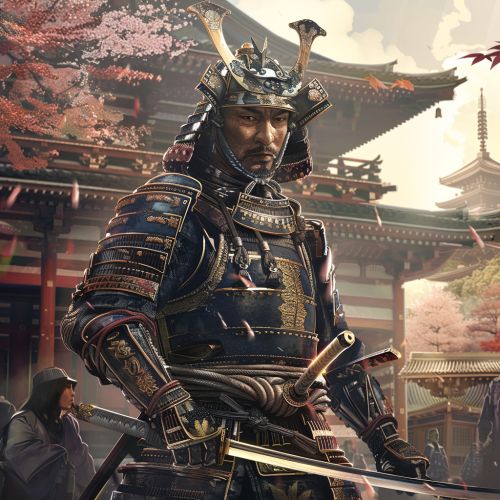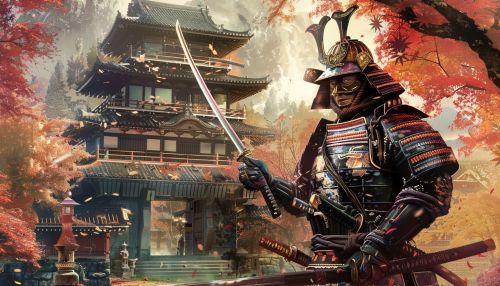Bushido
Origins and History
Bushido, often translated as "The Way of the Warrior", is a unique and complex code of conduct followed by the samurai class in feudal Japan. The term itself is derived from the words "bushi", meaning warrior, and "do", meaning path or way. The origins of Bushido can be traced back to the 8th century, during the Heian period, although the term itself was not coined until the 17th century.


The principles of Bushido were heavily influenced by Buddhist, Shinto, and Confucian philosophies, each contributing to the development of the samurai's moral and ethical code. Buddhism provided the samurai with a serene acceptance of fate and death, Shinto instilled a sense of national pride and duty, and Confucianism offered rules for social order and proper conduct.
Principles of Bushido
The Bushido code is often associated with seven fundamental virtues:
1. Rectitude or Justice (Gi): A samurai must make fair and just decisions, acting with a sense of moral rightness. 2. Courage (Yu): A samurai must display bravery and valor, not only in battle but also in their daily lives. 3. Benevolence (Jin): A samurai should act with kindness and compassion towards others. 4. Politeness (Rei): A samurai must show respect and courtesy to others, regardless of their status or class. 5. Honesty and Sincerity (Makoto): A samurai must be truthful and sincere in their words and actions. 6. Honor (Meiyo): A samurai must uphold their personal honor and the honor of their family and lord. 7. Loyalty (Chugi): A samurai must demonstrate unwavering loyalty to their lord and clan.
These virtues were not only guidelines for the samurai's conduct in battle, but also dictated their behavior in everyday life. They were expected to live these principles, embodying the ideals of Bushido in all aspects of their existence.
Influence on Japanese Society
The influence of Bushido extended beyond the samurai class and permeated all levels of Japanese society. The code's emphasis on loyalty, honor, and discipline became deeply ingrained in the Japanese cultural psyche, shaping the nation's social norms and values. Even after the abolition of the samurai class during the Meiji Restoration in the late 19th century, the principles of Bushido continued to influence Japanese society, contributing to the development of modern Japanese etiquette and ethics.
Modern Interpretations and Influence
In the modern era, the principles of Bushido have been reinterpreted and adapted in various ways. They continue to influence many aspects of Japanese culture, from martial arts and business practices to education and personal conduct. The code's emphasis on honor, loyalty, and discipline is often cited as a key factor in Japan's rapid post-war economic recovery and continued success.
While the samurai class no longer exists, the spirit of Bushido lives on in the hearts and minds of the Japanese people. It serves as a reminder of their cultural heritage and provides a moral compass guiding their actions and decisions.
